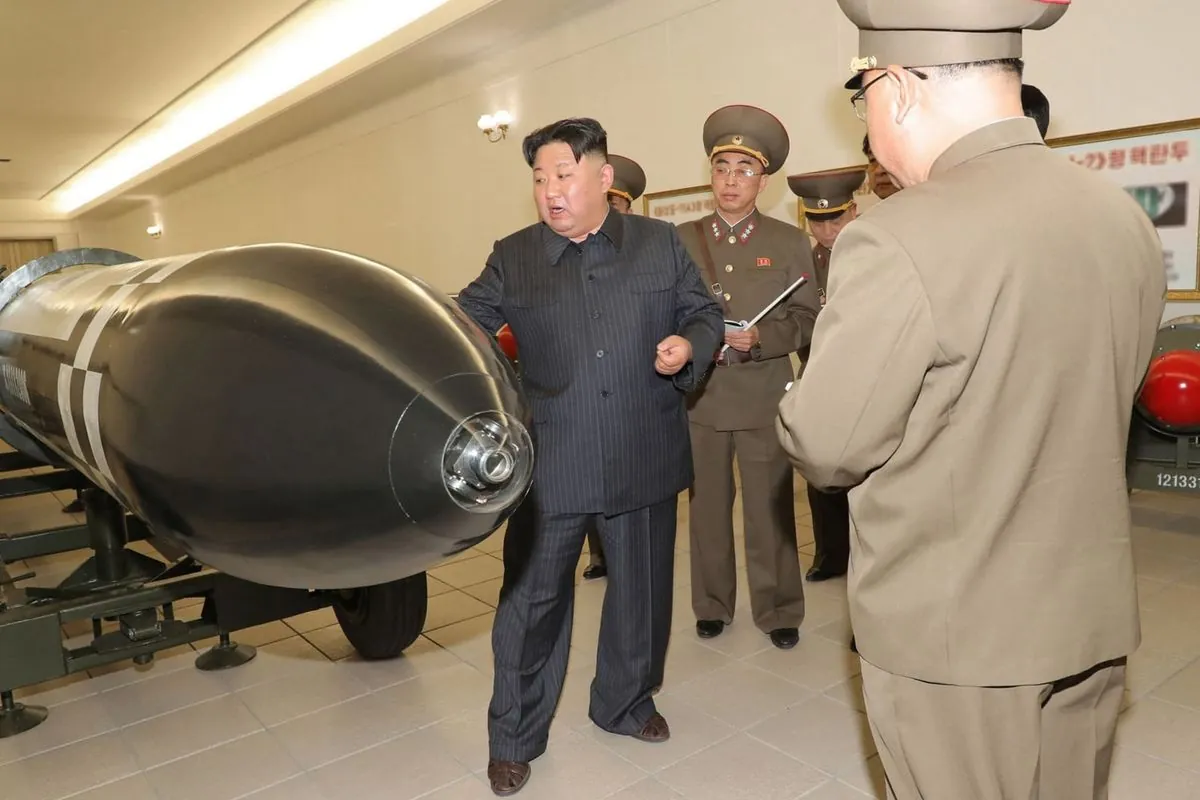The Korean Peninsula has entered a period of heightened tension, with experts warning that the region is more volatile than at any time since the Korean War. This assessment comes as North Korea has undergone significant strategic shifts in recent years, invalidating long-held diplomatic assumptions and raising concerns about potential conflicts.
Three key developments have reshaped the geopolitical landscape:
Nuclear buildup: Following the failed 2019 Hanoi summit between Kim Jong Un and former U.S. President Donald Trump, North Korea unveiled a five-year plan for major nuclear and missile advancements. This includes the development of solid-fuel ICBMs, miniaturized warheads, and hypersonic missiles.
Geopolitical repositioning: Pyongyang has strengthened ties with China and Russia, moving away from its previous goal of normalizing relations with the United States. This shift has been particularly evident in North Korea's cooperation with Russia following the Ukraine invasion.
Abandonment of reunification policy: In January 2024, Kim Jong Un discarded North Korea's long-standing commitment to reunification with South Korea, declaring the latter a "principal enemy" and calling for constitutional changes to reflect this new stance.
These developments have significantly altered the strategic balance in Northeast Asia. The region now appears to be dividing into two opposing blocs: China, Russia, and North Korea on one side, and the United States, South Korea, and Japan on the other. This polarization has effectively ended the cooperation on nuclear non-proliferation that previously enabled initiatives like the Six-Party Talks.
Recent events have further underscored the gravity of the situation. In September 2023, North Korea conducted a series of missile tests and Kim Jong Un vowed to prepare his nuclear forces for combat with the United States. These actions, coupled with Kim's rare public appearance at a uranium enrichment facility, signal an increasingly aggressive posture.
The potential for conflict is particularly concerning in light of North Korea's growing nuclear capabilities. While the country conducted its first nuclear test in 2006, it has since carried out five more tests, with the most recent occurring in 2017. This rapid advancement in nuclear technology has raised questions about the credibility of U.S. extended deterrence and fueled South Korea's interest in developing its own nuclear weapons.
One potential flashpoint is the Northern Limit Line (NLL), the disputed maritime border between North and South Korea. Established in 1953 following the armistice that ended the Korean War, the NLL has been a source of tension and occasional military clashes. In 2010, North Korea attacked Yeonpyeong Island, resulting in South Korean casualties. More recently, in early 2024, North Korea fired artillery shells near the island, further escalating tensions.
"As the southern border of our country has been clearly drawn, the illegal 'northern limit line' and any other boundary can never be tolerated, and if the ROK violates even 0.001 mm of our territorial land, air and waters, it will be considered a war provocation."
Experts have outlined several concerning scenarios that could arise from the current situation. One possibility is a nuclear shadow scenario, where a conventional conflict over the NLL escalates to the use of tactical nuclear weapons. Another alarming prospect is a two-front war in Asia, involving simultaneous crises on the Korean Peninsula and in Taiwan.
Despite these risks, both the United States and China appear to lack a sense of urgency regarding the Korean Peninsula. With ongoing conflicts in Ukraine and the Middle East, and broader strategic competition between the U.S. and China, North Korea has been relegated to a lower priority. However, Kim Jong Un's actions suggest that this lack of attention may be misplaced.
As tensions continue to simmer, it is crucial to recognize the complex history and dynamics at play. North Korea's "Juche" ideology of self-reliance, introduced by Kim Il-sung, continues to shape the country's policies. The nation's estimated population of 25 million lives under a strict system of social categorization known as "songbun," which determines access to resources and opportunities based on perceived loyalty to the regime.
While the likelihood of immediate large-scale conflict remains low, the strategic shifts on the Korean Peninsula have created a volatile environment with the potential for rapid escalation. As the international community grapples with multiple crises, it is essential not to overlook the evolving situation in Northeast Asia and the risks it poses to regional and global stability.
